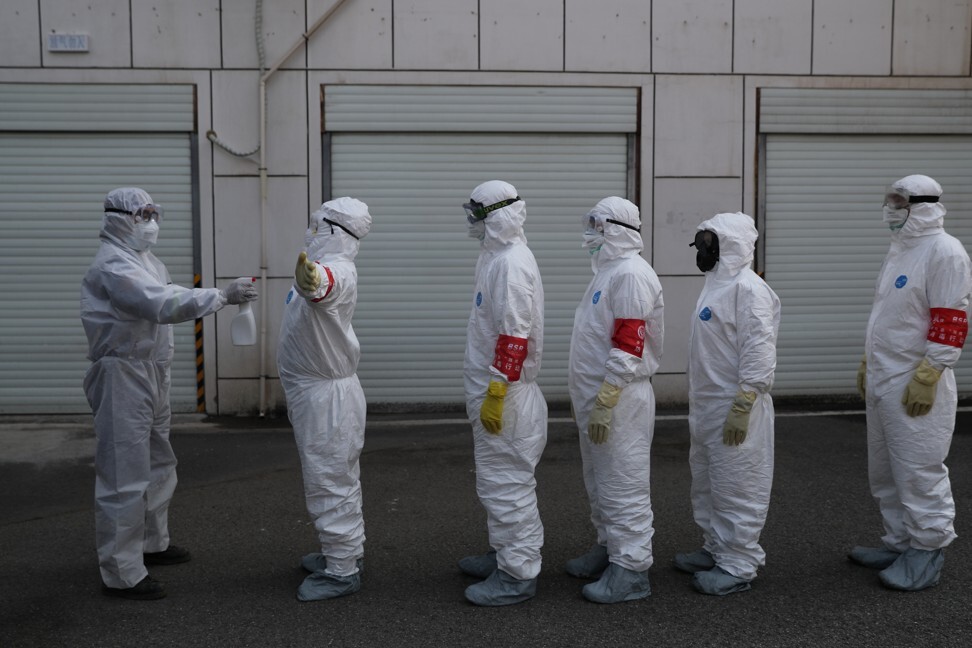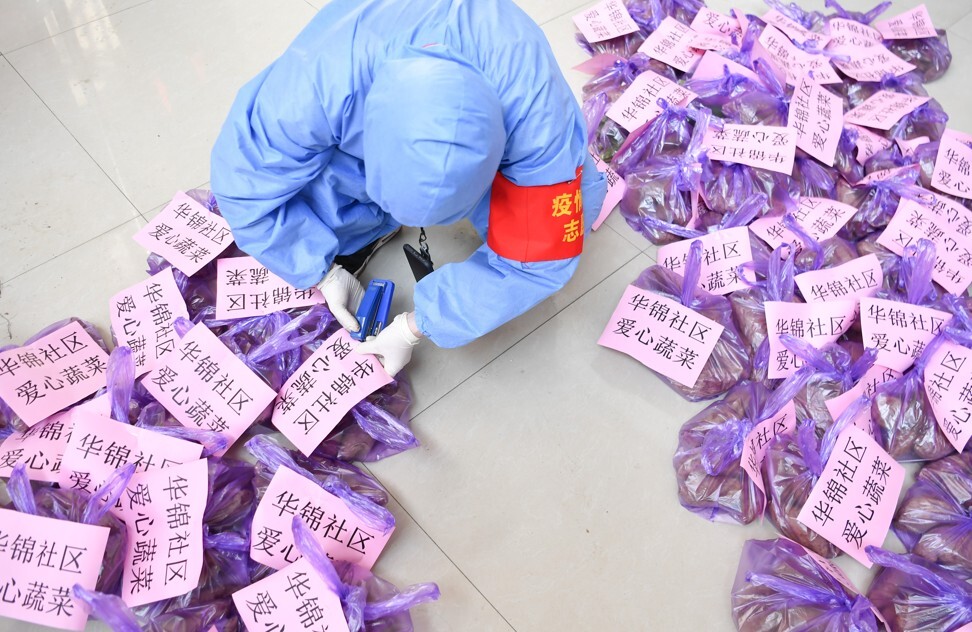
Wuhan volunteers reach out across the world to advise care groups and share coronavirus lessons
- Chinese coordinator approached to advise and guide helpers abroad as countries around the globe face distinct Covid-19 challenges
- Established organisations in Europe learn from the outbreak experience in China, including issues around rebuilding society after pandemic
In mid-March, after Wuhan had partially reopened from lockdown, Chen’s volunteer work gradually came to a halt. Then came requests from volunteers in Australia to ship masks. Gradually, requests also came from the United States and European countries.
Soon, volunteers abroad wanted to hear how Chinese volunteers had helped during the outbreak. Through Chinese residents abroad, Chen and his peers held Skype sessions with volunteers in France and Italy.
“They were at the stage where they didn’t know what to do and needed outside help,” Chen said. By that time, Chinese volunteers had already seen the light at the end of the tunnel.
In March, the Italian volunteers were in a similar situation to those in Wuhan in January when the outbreak had just started. The hospitals were jammed, resources were scarce, many patients died at home and volunteers did not know where to begin helping others or how to keep themselves safe.

Chen told them about how his volunteer organisation had divided duties, such as collecting information, driving patients to hospitals, delivering supplies or providing counselling. He also gave tips that Chinese volunteers had learned through days of working on the front line.
A brochure he and other Chinese volunteers compiled on staying safe in an outbreak zone has been translated into more than 20 languages. In the brochure, he gives specific recommendations on how volunteers can stay safe.
“The help most requested of volunteers is that of delivering supplies. We need to ensure that volunteers should not see anyone face to face in the process, avoid rush hour in the supermarkets, sanitise their hands instantly and drop supplies outside people’s doors,” he wrote in the brochure.
Coronavirus science latest: vaccines, treatments, reinfection and research
The brochure includes the advice that all volunteers’ bags, clothes and cars need to be sanitised before going home so family are not inadvertently infected.
A “contamination zone” should be set up at the entrance of a volunteer’s home to deposit anything they bring from the outside, including clothes and shoes, and the voluntary worker should be disinfected and bathed before interacting with others in the household.
In the early stages, Chinese volunteers had little knowledge of how to deal with an infectious disease outbreak. They paid a heavy price for this.
One Wuhan volunteer who delivered medical supplies to hospitals died after being infected with the virus. Many doctors and nurses in the city also died.
“We can share some experiences with [foreign volunteers] so that they don’t repeat our same mistakes,” Chen said.
Staff in Wuhan hospitals have also shared their medical experiences. Wuhan Xiehe Hospital workers chatted via videoconference with hospital staff in the US, Germany and Switzerland, revealing their experiences on diagnosis and treatment.
However, some experiences would not apply to other countries because of differences in cultural and governance systems. In China, frontline volunteers were organised at a grass-roots level, sometimes on the spot. But many volunteers in France and Italy belonged to professional organisations.
These European bodies had ambulances and official channels to receive requests for help in contrast to their Chinese counterparts who had to scour the web for patients, Chen said.
He also found differences in the actions volunteers could take and their acceptance by the public.
“In China we had volunteers helping patients buy medicine but that could be illegal abroad,” he said. “There would be legal liabilities if something happened to the patient.”

The Wuhan locals trusted the volunteers unconditionally. When volunteers approached them online, the recipients of that assistance gave them telephone numbers, addresses and even ID numbers. But in Italy, the public was more concerned with privacy and did not want to be exposed.
“There’s no grid system in Italy like in China, where cities and communities are divided into many smaller units,” he said. “In China, volunteers can enter into smaller units to help, such as being posted in each residential compound, so the picture is more complete.”
Anti-Chinese social media ‘more scary than Covid-19’ in Indonesia
Ou felt that many issues had been exposed during the outbreak. As an Asian, he suddenly felt he received more attention. Asians in Italy – and elsewhere around the world – had been exposed to more hostility, and even violence. He had thought his community in Italy was orderly but now realised discrimination issues had been deeply buried.
“More work should be done on resolving conflicts, cultural differences, protection of minorities and justice, and in general, how to better communicate,” he said.
In Italy, volunteers could help with government efforts at airports and hospitals and drove ambulances, but seldom drove patients from home to hospital as in China.
Most of the experiences shared could not be directly copied and used in his Italian community, Ou said. But there were lessons to take away, such as the value of collecting and compiling information on the control of the outbreak for public education.

.jpg?itok=H5_PTCSf&v=1700020945)